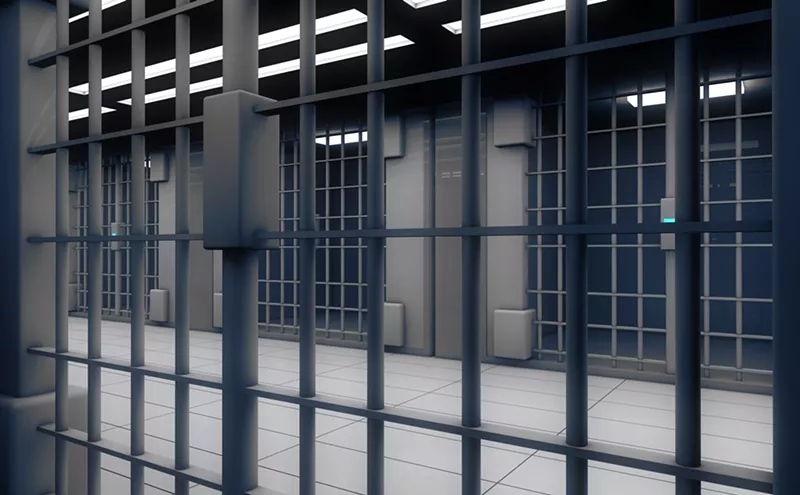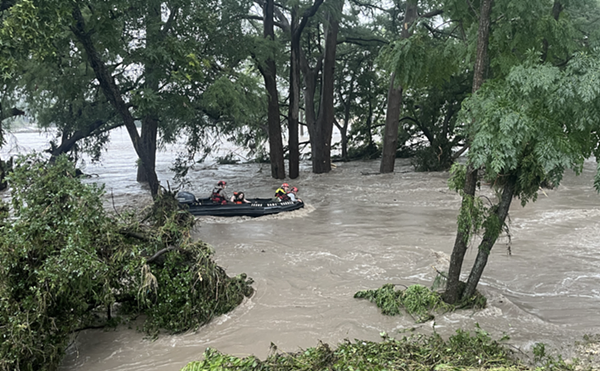Barring Supreme Court intervention, Texas residents unable to secure photo identification before the November 8 general election will not be prevented from voting, the U.S. 5th Circuit Court of Appeals ruled Wednesday. The state pushed the Texas Voter ID law as the last bulwark against a rising tide of voter fraud, but opponents decried it as vote suppression. The court ruled that the law as written is racially discriminatory in its effect, whether that was what the Texas Legislature intended when it passed the law in 2011 or not.
The court did not strike the law down, but ruled that the state has to do something to address voters who cannot easily obtain one of the seven forms of photo ID — a driver's license, state ID, concealed handgun permit, passport, U.S. citizenship certificate, military ID or special voter ID — required by the state of Texas to cast a ballot.
The law had previously been declared unconstitutional twice, first by a U.S. District Court in Austin and then by a three-judge 5th Circuit panel. The state asked that the full 5th Circuit hear the case in May and the court granted that request.
When the court heard arguments this spring, Janai Nelson, arguing on behalf of the NAACP Legal Defense and Educational Fund, said that the law was drafted during a racially charged Texas legislative session and that it disproportionately affected minority voters because blacks and Latinos have shakier access to the resources — namely transportation and readily obtainable birth certificates — needed to get their hands on photo identification.
Writing for a nine-judge majority, Catharina Haynes agreed on Wednesday.
"The record shows that drafters and proponents of SB 14 were aware of the likely disproportionate effect of the law on minorities, and that they nonetheless passed the bill without adopting a number of proposed ameliorative measures that might have lessened this impact," she wrote.
Other states with similar voter ID laws have survived legal challenges because they offered better alternatives to those seeking ID, than Texas' election identification certificate, the court said, which the state hasn't properly funded or promoted. To fix the problem, the court has ordered the state of Texas to remedy the hurdles it's created before November.
The state could, as Indiana has done, allow an indigence exception to identification requirements; it could also allow voters to sign an affidavit saying they were unable to obtain ID, as a U.S. District Judge just required the state of Wisconsin to do.
Whatever happens, progressive groups who have continuously claimed that the law amounts to a partisan attack on Democrats exulted Wednesday afternoon.
"We are absolutely thrilled with today’s ruling. For everyone who believes in a full and representative democracy, today is a day to celebrate," Progress Texas Executive Director Ed Espinoza said. "Democrats have argued for more than a decade that Republican attempts to pass a voter ID bill are discriminatory. Today, the most conservative court in the country agreed with what we’ve said."
Nelson called the ruling an "enormous victory for our democracy and an affirmation that the right to vote is fundamental and to be fiercely protected — especially against racial discrimination."
Texas Governor Greg Abbott, attorney general when the law passed, reasserted that the law addressed genuine concerns about voter manipulation.
"Voter fraud is real, and it undermines the integrity of the election process. As Attorney General I prosecuted cases against voter fraud across the State, and Texas will continue to make sure there is no illegal voting at the ballot box," he said.
Haynes said that the state of Texas has made similar arguments in the past.
For example, the record shows that Texas has a history of justifying voter suppression efforts such as the poll tax and literacy tests with the race-neutral reason of promoting ballot integrity," she wrote.
If and when Texas appeals the circuit ruling to the Supreme Court it is unlikely to find a friendly panel. At most, the state could count on three votes from the court's conservative justices and one from swing vote Anthony Kennedy, and a 4-4 split of the still incomplete Supreme Court bench would simply uphold Wednesday's decision.

Audio By Carbonatix
[
{
"name": "GPT - Billboard - Slot Inline - Content - Labeled - No Desktop",
"component": "21721571",
"insertPoint": "2",
"requiredCountToDisplay": "2"
},{
"name": "STN Player - Float - Mobile Only ",
"component": "21861991",
"insertPoint": "2",
"requiredCountToDisplay": "2"
},{
"name": "Editor Picks",
"component": "17105533",
"insertPoint": "4",
"requiredCountToDisplay": "1"
},{
"name": "Inline Links",
"component": "18349797",
"insertPoint": "8th",
"startingPoint": 8,
"requiredCountToDisplay": "7",
"maxInsertions": 25
},{
"name": "GPT - 2x Rectangles Desktop, Tower on Mobile - Labeled",
"component": "22608066",
"insertPoint": "8th",
"startingPoint": 8,
"requiredCountToDisplay": "7",
"maxInsertions": 25
},{
"name": "Inline Links",
"component": "18349797",
"insertPoint": "8th",
"startingPoint": 12,
"requiredCountToDisplay": "11",
"maxInsertions": 25
},{
"name": "GPT - Leaderboard to Tower - Slot Auto-select - Labeled",
"component": "17357520",
"insertPoint": "8th",
"startingPoint": 12,
"requiredCountToDisplay": "11",
"maxInsertions": 25
}
]











